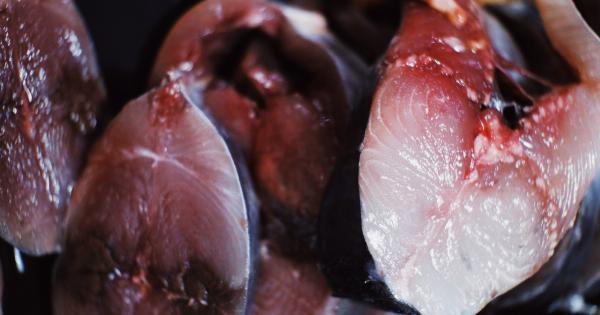Hypertension, commonly known as high blood pressure, is a condition where the force of the blood against the walls of the arteries is consistently too high.
The resulting strain on the heart and blood vessels can lead to several serious health problems, including heart attack, stroke, and kidney failure. Hypertension is a major public health concern affecting millions of people globally. While genetics plays a role in the development of hypertension, research has shown that lifestyle factors, especially diet, also play a significant role.
What Is Hypertension?
Understanding the basics of hypertension is essential to understanding its relation to dietary habits.
The blood pressure is recorded with two numbers: the systolic pressure (the higher number), which measures the force of blood against the arteries when the heart beats, and the diastolic pressure (the lower number), which measures the force of blood against the arteries when the heart is at rest. A healthy blood pressure reading is usually less than 120/80mmHg. If your blood pressure is between 120/80mmHg and 139/89mmHg, you are considered to have prehypertension.
If your blood pressure is consistently above 140/90mmHg, you are considered to have hypertension.
How Does Diet Affect Hypertension?
Research has shown that dietary habits play a significant role in the development and management of hypertension. Diets high in saturated and trans fats, salt, and sugar have been linked to the development of hypertension.
Conversely, diets that are rich in fruits, vegetables, whole grains, and lean proteins have been shown to help lower blood pressure.
Salt Intake and Hypertension
Salt, or sodium chloride, has been identified as one of the leading dietary contributors to hypertension.
Studies have shown that reducing salt intake can help lower blood pressure in individuals with hypertension and reduce the risk of developing hypertension in those with prehypertension. The American Heart Association recommends that individuals consume no more than 2,300 milligrams of sodium per day, which is about one teaspoon of salt.
However, most Americans consume much more than that, with the average intake being around 3,400 milligrams per day. Some common sources of salt in the diet include processed foods, canned goods, and restaurant meals.
Sugar Intake and Hypertension
In addition to salt, diets that are high in sugar have also been linked to hypertension. Studies have shown that consuming large amounts of sugar can damage the lining of the arteries, which can cause high blood pressure.
Additionally, diets that are high in sugar are often low in other nutrients and may contribute to weight gain, another risk factor for hypertension. To reduce sugar intake, it is essential to limit intake of sugary drinks, candies, and desserts.
Saturated and Trans Fats Intake and Hypertension
Dietary fats, especially saturated and trans fats, have also been linked to hypertension. Saturated fats are typically found in animal products such as meat and dairy products, while trans fats are found in many processed foods.
These types of fats can raise cholesterol levels, which can increase the risk of hypertension and other heart-related health problems. To reduce intake of saturated and trans fats, it is important to choose lean proteins, such as fish and poultry, and to avoid processed foods.
Fruits, Vegetables, and Whole Grains Intake and Hypertension
In contrast to diets that are high in salt, sugar, and unhealthy fats, diets that are rich in fruits, vegetables, and whole grains have been shown to help lower blood pressure.
These foods are typically high in nutrients such as potassium, magnesium, and fiber, which are important for maintaining healthy blood pressure levels. Additionally, diets that are abundant in these foods tend to be lower in calories and may help with weight management, another important factor for hypertension prevention.
Conclusion
Hypertension is a serious health concern that affects millions of people worldwide.
While genetics plays a role in its development, research has shown that dietary habits, especially high salt, sugar, and unhealthy fats are significant contributors to hypertension. To reduce the risk of developing hypertension, it is essential to maintain a healthy diet rich in fruits, vegetables, whole grains, and lean proteins.
Additionally, it is important to limit or avoid processed foods, sugary drinks, and foods high in salt and unhealthy fats.





























